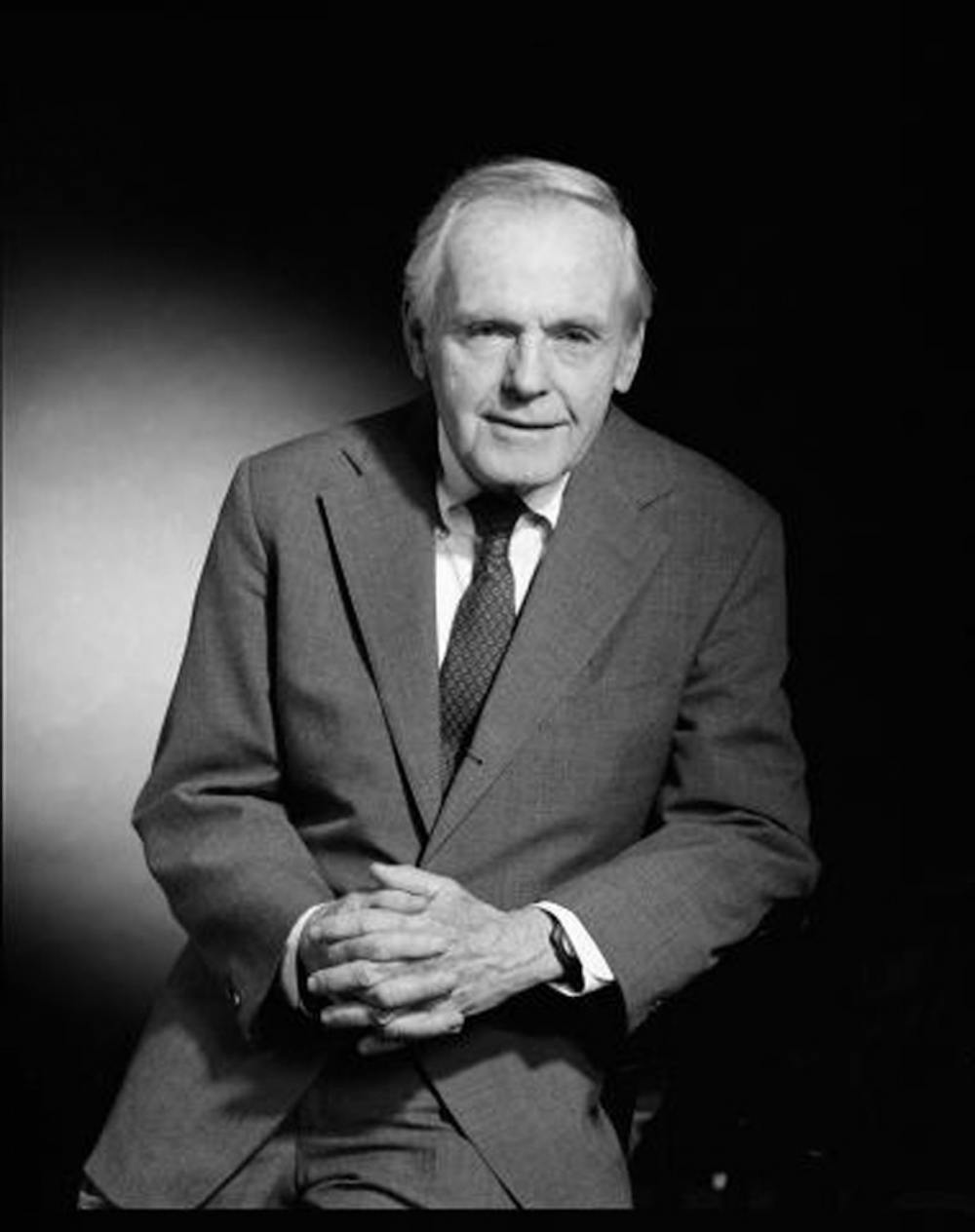Jeffrey O’Connell, an internationally respected legal mind and Law School professor for 32 years, died Jan. 6 at the age of 84. He had retired from teaching last spring.
A graduate of Dartmouth College and Harvard Law, O’Connell began his legal career as a trial lawyer in Boston for the firm Hale and Dorr before turning to teaching. He served on the faculty at the University of Illinois for 16 years and also taught at the University of Iowa before coming to the University’s Law School in 1980.
O’Connell is survived by his daughter Mara, his son Devin, his sister Jesslyn and his brother Thomas. A funeral mass was held Saturday at St. Thomas Aquinas University Parish, followed by a reception at Farmington Country Club.
O’Connell was a champion of no-fault automobile insurance, which allows an accident victim to collect compensation more quickly from his own insurance provider rather than go through litigation to collect from the other party’s insurer. He co-authored the book “Basic Protection for the Traffic Victim: A Blueprint for Reforming Automobile Insurance” with renowned legal tort scholar and Harvard Law Prof. Robert Keeton in 1965.
For the next several years he ventured across the country, testifying before committees and using techniques learned in his theater background to present his ideas. By the end of the 1970s, no-fault insurance had been enacted in more than a dozen states and slowly began to grow globally as well, taking root in Canada, New Zealand, Australia and Israel.
“Without Professor O’Connell’s efforts, it is unlikely that no-fault insurance would have been tried in so many states,” Law School Dean Paul Mahoney said in an email. “He did not merely write about his ideas, but worked tirelessly to see them implemented.”
Law School Prof. Kenneth Abraham recalls first meeting O’Connell at a medical malpractice conference in 1976. “I was a junior faculty member and he was already a famous scholar and law reformer,” Abraham said in an email. “I found him to be dynamic, articulate, and a forceful advocate for his point of view, but also a friendly and unpretentious person.”
Later in his career, O’Connell was an advocate for “early offers” in medical malpractice suits — wherein plaintiffs can receive a settlement quickly if they choose not to go through the courts or ask for pain and suffering compensation. Though the idea did not receive as much traction as no-fault automobile insurance, the New Hampshire legislature did pass such a law last June, overturning a gubernatorial veto.
Both his automobile insurance and medical malpractice proposals stemmed from a profound belief in making just compensation quickly and readily available to victims of accidents, said Widener University Law Prof. Chris Robinette, a student in O’Connell’s class in the fall of 1993. Robinette later worked with O’Connell as a research assistant and in 2008 co-authored a book on tort reform with him.
As a professor and colleague, O’Connell is remembered for his kindness and humor. “Jeffrey was magnetic,” Robinette said. “He commanded a room.”
Born with an insatiable curiosity, O’Connell often carried around a copy of the Times Literary Supplement folded in his pocket. “The world was simply too exciting, too interesting, for Jeff to waste even a minute when he could be exploring some new horizon,” Law Prof. A. E. Dick Howard said in an email.
The author of a dozen books — on topics ranging from automobile insurance reform to American college presidents — O’Connell was a celebrated presence in the legal world, twice the recipient of a Guggenheim fellowship and given the Robert B. McKay Award for Tort and Insurance Scholarship in 1992 by the American Bar Association.
“He was a kind, decent, informed, engaged member of our academic community,” Howard said. “Mr. Jefferson would have enjoyed having dinner with Jeff.”







